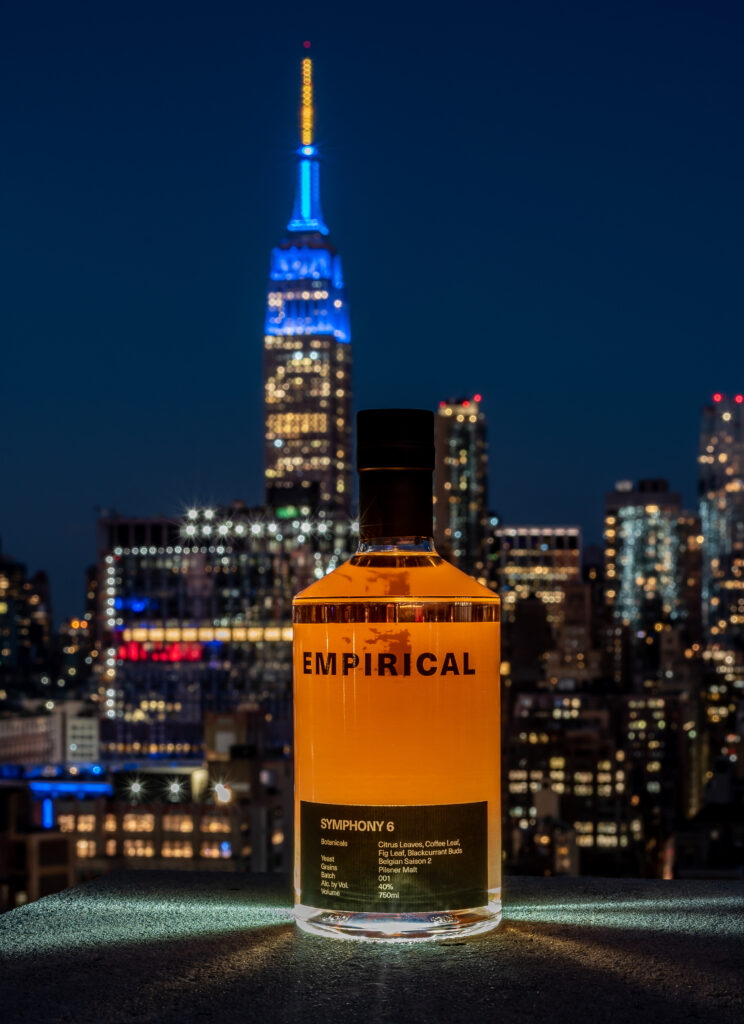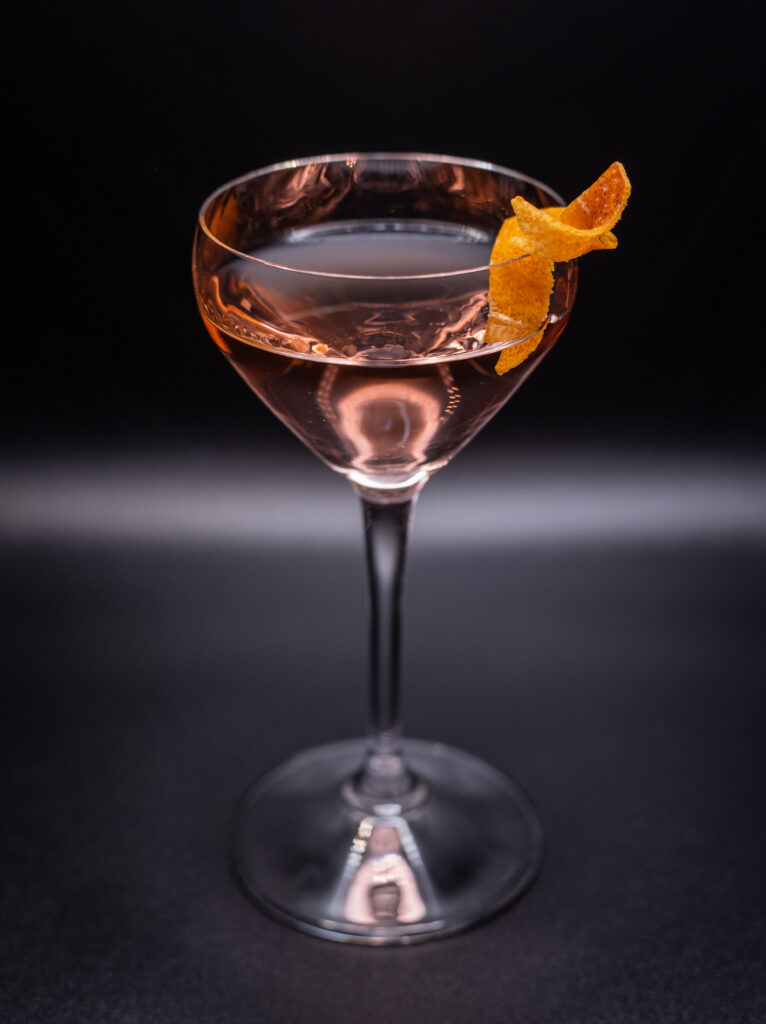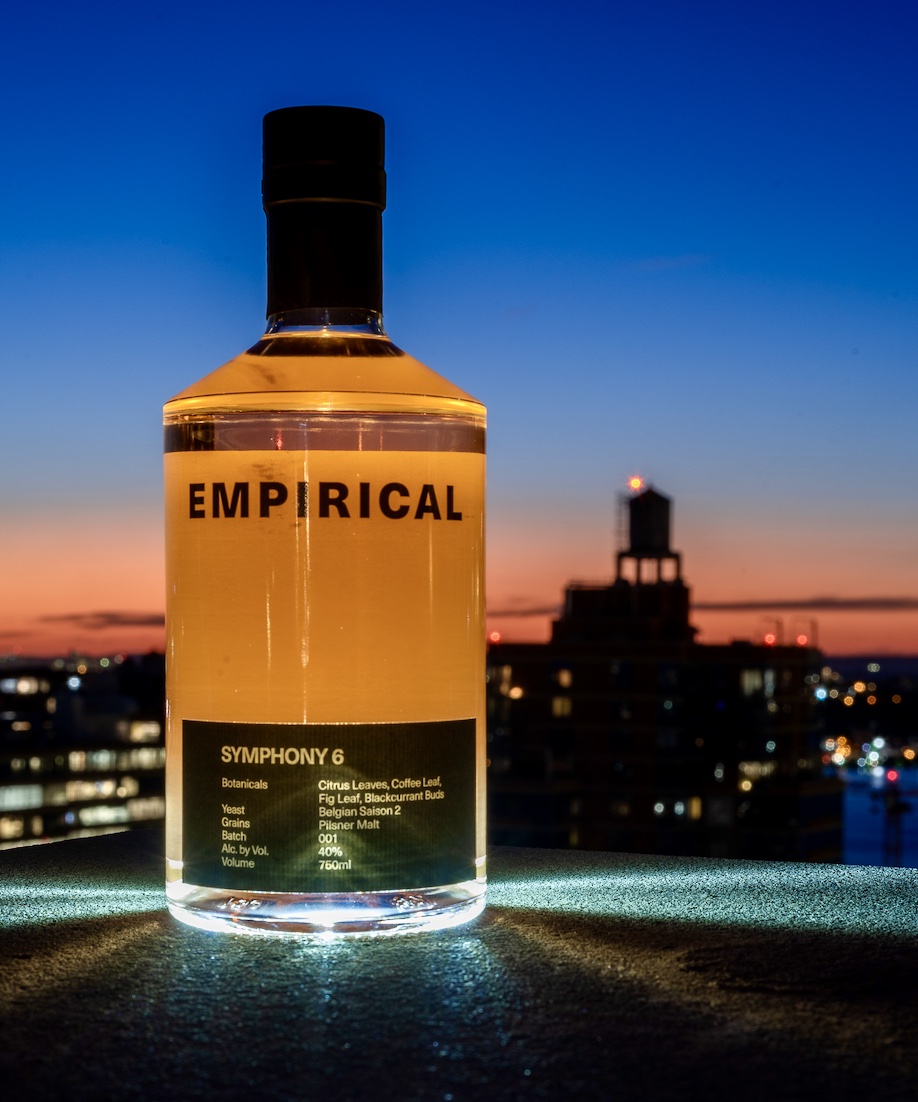When I first learned about Empirical I was immediately confused. It was described as “a Copenhagen-based flavor company crafting free-form spirits,” along with a picture of their latest spirit called “Symphony 6,” a watermelon-ish colored spirit with 40% ABV. Symphony 6 is described on the company’s website as: “a moment in an eternal summer; a point where light and dark, day and night meet, when ephemeral and timeless come together.”
Yeah, I know.
I felt like I was in middle school reading Shakespeare for the first time. I saw words, but they were not computing. While I could not consult Shakespeare in middle school, now, I had the opportunity for some real-time clarification. I spoke with the two co-founders of Empirical, Lars Williams and Mark Emil Hermansen who broke it down for me.
First of all, we had to get what the heck a “free-form spirit” was out of the way.
“The way most of us experience spirits is through the lens of pre-established categories,” explained the co-founders. “Making a gin, a vodka or a whisky comes with a set list of do’s and dont’s – from the base you use, to the botanicals, ABV, and more, everything is codified and immutable. It is restrictive by definition.”
That means Lars and Mark are not restricted by an ingredient list when they’re approaching their spirits. That also meant I had to throw the typical box that I put spirits in – right out the window. I’m not about to experience either a vodka-like or a gin-like spirit.
And that brings me to my moment in an eternal summer, Symphony 6.

Let’s start simple, their spirit’s name is a nod to Beethoven’s Symphony No. 6, also known as the “Pastoral Symphony.”
“It was Beethoven’s love letter to nature, that he described himself as ‘more the expression of feeling than painting’,” explained Lars and Mark. “Our blending process and the balance between the botanicals created this complex melody, telling a story without uttering a word. It is also an ode to the six different leaves used in the spirit.”
The six leaves they’re using in the spirit include mandarin, lemon, coffee (rolled and unrolled), black currant and fig leaves.
What was really fascinating to me, was how they expanded on how fig leaves ended up in the drink.
“We looked at our library of botanicals and found a fig leaf distillate we had made that tasted delicious but never found its right place in a product,” said the founders. “Its green and earthy flavors came with the cooling sensation of finding shade after a sun-drenched day.”
It’s clear that these guys know their taste buds inside and out. They tried something a long time ago and found a place for it in this drink. That’s pretty rad, that they didn’t want a flavor to go to waste.
They also took aroma into account, and that’s where the black currant buds come into play.
“These folded leaves that have not bloomed yet are praised in perfumery as being one of the very few natural fruity notes available to the perfumer,” said Lars and Mark. “The buds bring biting, green, sulfurous and liqueur-like aromas to Symphony 6.”
This tells me they’re looking at the entire plant. For example, when you’re walking in a garden and you have tomatoes that haven’t budded yet, BUT you can still smell them in the garden. They’re making you taste the tomatoes before they sprout in your garden.
The only real inconvenience of this is that I would assume most people (including me) haven’t tried either fig leaves or black currants. So I don’t know what I’d be tasting or have any point of reference. It is cool, however, that Lars and Mark are opening people up to those flavors through the spirit.
Another fun fact about the spirit is that they use vacuum distillation. Typically, if you go to a distillery you have a boiler, the pot evaporates the liquid, you get a vapor that goes through the tube and it drips. A lot of particles escape. Vacuum distillation, however, is not allowing the particles (flavor) to escape. They found a way to capture those particles that traditionally disappear and trap them inside their bottle.

After understanding what was in the bottle and how it got there, it was time to taste it.
They recommended initially tasting Symphony 6 chilled and neat, so I did that.
The neat, chilled drink smelled herby and floral and immediately brought this Floridian back to her youth of walking around Florida orange groves. The drink was smooth going down. Even though I wasn’t supposed to think of gin, I did, because of the strong aromas. So, I braced for the burn of it going down my throat. Thankfully, it didn’t.
But then I added ice.
The taste got stronger and the drink burned a LITTLE going down.
I don’t know the science of why that happened, but it did.
Lars and Mark also suggested trying the beverage with tonic.
Inexorably, I did, but I wasn’t excited about it.
Why?
Because I hate gin and tonics. Well, this was not that and was DELIGHTFUL. The tonic actually brought out the citrus flavor in the spirit. In a gin and tonic you typically add citrus, but with Symphony 6, it’s not necessary at all. Any of the sharpness that I felt from having the beverage on the rocks was softened by the tonic. This is a dangerous drink and could be (and was) consumed very quickly.
While Lars said that he enjoyed Symphony 6 best on the rocks, Mark said, “I love the marriage of Symphony 6 with Champagne, so a twist on a French 75 is my go-to.”
Obviously, I had to try his twist on a French 75.
I went all-in and used Veuve Clicquot. I’m glad I did, and Mark was totally right in picking the French 75 as the cocktail. The champagne elevated the Symphony 6 and its flavors. I would even argue that it’s better than the tonic combination, and adds a completely different dimension to the drink. Champagne is quite acidic and the Symphony 6 took most of that out of it and made the drinking experience even more enjoyable.
If this were my first French 75, and then I went to another bar that put gin in it, I’d actually be furious because it doesn’t even come close to this one.
Verdict: There is no drink-category box, and if you have one, throw it away and pour your gin all over it. Lars and Mark have done an amazing job by creating a product that you can not only savor on its own, but also reinvent classic cocktails with.









